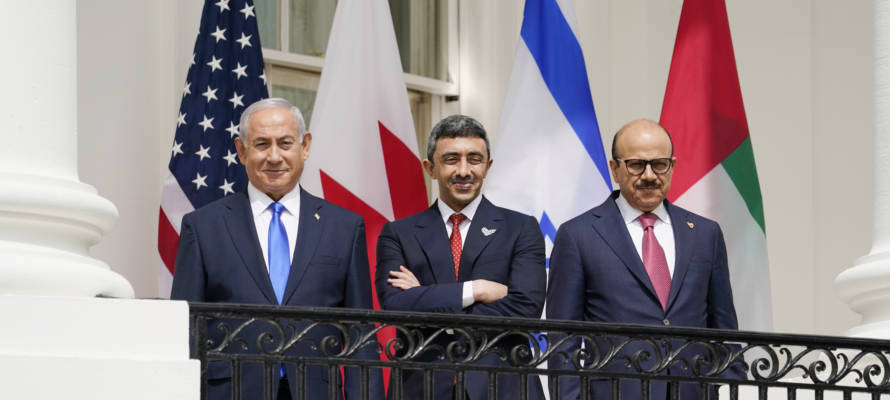Dennis Ross called on President Joe Biden to maintain Donald Trump’s Middle East policies of prioritizing Israel-Arab peace deals and backing Iran into a corner.
By Yakir Benzion, United With Israel
A former top official in the Obama administration who also headed Middle East peace talks says President Joe Biden should keep two key aspects of President Donald Trump’s Middle East foreign policy.
In an op-ed published Wednesday by the Foundation for Defense of Democracies, Dennis Ross said Trump’s brokering of peace between Israel and Arab states worked and Biden should keep it going, while Trump’s pressure on Iran “created leverage that should not be discounted.”
Ross said that the Biden administration should “reject the impulse to reject the vestiges of Trump administration policies.”
“The instinct to make swift, dramatic changes is understandable and can often be right. Eisenhower needed to find a way to end the Korean War. Kennedy needed to take account of the awakening in the developing nations that did not fit neatly into the two Cold War blocs. Nixon pledged to end the Vietnam War,” said Ross, a veteran diplomat who has served both Republican and Democratic presidents.
“While there is much to change, some Trump administration approaches to foreign policy should not be reversed reflexively,” Ross noted.
“For example, in the Middle East, the recent establishment of formal relations between Israel and Arab countries of the United Arab Emirates, Bahrain, Sudan and Morocco creates new realities in the region. It reflects a strategic convergence between many Arab states and Israel, not just on threats but also on their common interest to promote more technologically-driven economies and to address water and food security needs.”
“The Biden administration can build on these agreements and forge even more. It can broker Arab outreach to Israel to promote Israeli moves that could benefit the Palestinians and yield Palestinian responses. Normalization with Arab nations will not produce Israeli-Palestinian peace in the short run, but it can be a means to break the stalemate between Israelis and Palestinians and reestablish a sense of possibility,” said Ross, who served in senior national security positions in the Reagan, George H.W. Bush, Clinton and Obama administrations and is now with the Washington Institute for Near East Policy, a major think tank.
Even though Ross called Trump’s withdrawal from the Iran nuclear agreement “a mistake,” he pointed out that Trump’s “maximum pressure campaign has certainly created leverage that should not be discounted.”
Ross noted that Tehran may be trying to force Iran onto the Biden administration’s agenda with their decision to enrich uranium to 20% “and showing that the Islamic Republic presents a problem that must be addressed.”
But Ross pointed out that Iran’s goal is relief from the harsh economic sanctions.
“The beginning of a new administration is often a time for reversing course, but reflexive impulses in foreign policy are seldom right. Biden will need to demonstrate his ability to lead globally and heal America’s democracy in the wake of the Jan. 6 attack and the effects of the pandemic. Still, in forming his own foreign policy agenda, Biden should consider seriously the elements of his predecessor’s approach worth keeping.”
